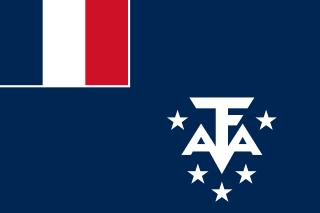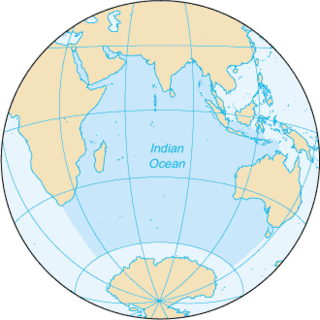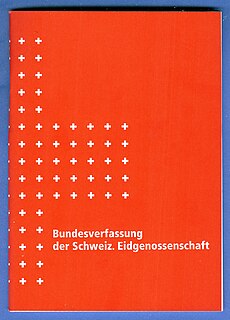The United Nations General Assembly declared 2004 as the International Year to Commemorate the Struggle against Slavery and its Abolition (having welcomed the fact that UNESCO had proclaimed it as such earlier). [1]

The United Nations General Assembly is one of the six principal organs of the United Nations (UN), the only one in which all member nations have equal representation, and the main deliberative, policy-making, and representative organ of the UN. Its powers are to oversee the budget of the UN, appoint the non-permanent members to the Security Council, appoint the Secretary-General of the United Nations, receive reports from other parts of the UN, and make recommendations in the form of General Assembly Resolutions. It has also established numerous subsidiary organs.

The United Nations Educational, Scientific and Cultural Organization is a specialized agency of the United Nations (UN) based in Paris. Its declared purpose is to contribute to peace and security by promoting international collaboration through educational, scientific, and cultural reforms in order to increase universal respect for justice, the rule of law, and human rights along with fundamental freedom proclaimed in the United Nations Charter. It is the successor of the League of Nations' International Committee on Intellectual Cooperation.
Contents
The General Assembly resolution in its entirety (of which this declaration was a single paragraph) was voted against by the Israel, Palau and the United States, with Australia and Canada abstaining. [2]
A United Nations General Assembly Resolution is voted on by all member states of the United Nations in the General Assembly.

Israel, officially the State of Israel, is a country in Western Asia, located on the southeastern shore of the Mediterranean Sea and the northern shore of the Red Sea. It has land borders with Lebanon to the north, Syria to the northeast, Jordan on the east, the Palestinian territories of the West Bank and Gaza Strip to the east and west, respectively, and Egypt to the southwest. The country contains geographically diverse features within its relatively small area. Israel's economic and technological center is Tel Aviv, while its seat of government and proclaimed capital is Jerusalem, although the state's sovereignty over Jerusalem has only partial recognition.

Palau, officially the Republic of Palau, is an island country located in the western Pacific Ocean. The country contains approximately 340 islands, forming the western chain of the Caroline Islands in Micronesia, and has an area of 466 square kilometers (180 sq mi). The most populous island is Koror. The capital Ngerulmud is located on the nearby island of Babeldaob, in Melekeok State. Palau shares maritime boundaries with the Philippines, Indonesia, and the Federated States of Micronesia.
The United Nations International Years, beginning with the World Refugee Year in 1959/1960, are designated in order to focus world attention on important issues. The proclamation of an international year to commemorate the struggle against slavery and its abolition marked the bicentenary of the proclamation of the first black state, Haiti, as well as the reunion of the peoples of Africa, the Americas, the Caribbean and Europe.

Slavery is any system in which principles of property law are applied to people, allowing individuals to own, buy and sell other individuals, as a de jure form of property. A slave is unable to withdraw unilaterally from such an arrangement and works without remuneration. Many scholars now use the term chattel slavery to refer to this specific sense of legalised, de jure slavery. In a broader sense, however, the word slavery may also refer to any situation in which an individual is de facto forced to work against their own will. Scholars also use the more generic terms such as unfree labour or forced labour to refer to such situations. However, and especially under slavery in broader senses of the word, slaves may have some rights and protections according to laws or customs.

Haiti, officially the Republic of Haiti and formerly called Hayti, is a country located on the island of Hispaniola, east of Cuba in the Greater Antilles archipelago of the Caribbean Sea. It occupies the western three-eighths of the island, which it shares with the Dominican Republic. Haiti is 27,750 square kilometres (10,714 sq mi) in size and has an estimated 10.8 million people, making it the most populous country in the Caribbean Community (CARICOM) and the second-most populous country in the Caribbean as a whole.
Among the initiatives that marked the commemorative year was a virtual exhibition, Lest We Forget: The Triumph over Slavery, created by the Schomburg Center for Research in Black Culture and New York Public Library.

The Schomburg Center for Research in Black Culture is a research library of the New York Public Library (NYPL) and an archive repository for information on people of African descent worldwide. Located at 515 Malcolm X Boulevard between West 135th and 136th Streets in the Harlem neighborhood of Manhattan, New York City, it has, almost from its inception, been an integral part of the Harlem community. It is named for Afro-Puerto Rican scholar Arturo Alfonso Schomburg.

The New York Public Library (NYPL) is a public library system in New York City. With nearly 53 million items and 92 locations, the New York Public Library is the second largest public library in the United States and the third largest in the world. It is a private, non-governmental, independently managed, nonprofit corporation operating with both private and public financing.
Another effort that was launched during the year was a research and information programme, Forgotten Slaves. The programme was implemented by the French Marine Archaeology Group (GRAN) with the support of UNESCO. It was inspired by the wreck of the slave ship l’Utile off the shores of the Tromelin Island in the Indian Ocean in 1761 and was intended to be part of an information campaign to raise awareness of both the history of slavery and modern forms of slavery.

Slave ships were large cargo ships specially converted for the purpose of transporting slaves. Such ships were also known as "Guineamen" because their trade involved trafficking to and from the Guinea coast in West Africa.

Tromelin Island is a low, flat, island in the Indian Ocean about 500 kilometres (310 mi) north of Réunion, and about 450 kilometres (280 mi) east of Madagascar. Tromelin is administered as part of the French Southern and Antarctic Lands, a French overseas territory; however, Mauritius claims sovereignty over the island, on grounds of its absence in the listing of the 8th article of the French version of the 1814 Paris Treaty. France and Mauritius have been negotiating for years in regard to the possible establishment of a condominium over the island.

The Indian Ocean is the third largest of the world's oceanic divisions, covering 70,560,000 km2 (27,240,000 sq mi). It is bounded by Asia on the north, on the west by Africa, on the east by Australia, and on the south by the Southern Ocean or, depending on definition, by Antarctica.




